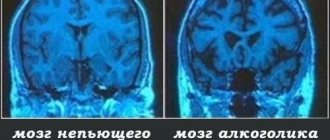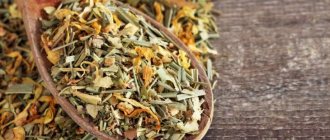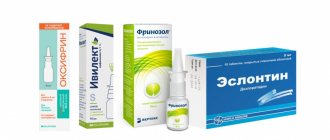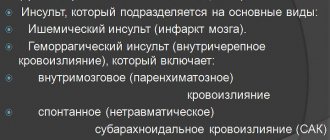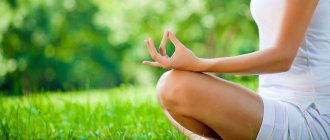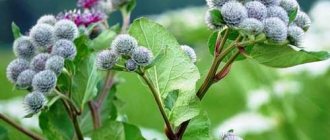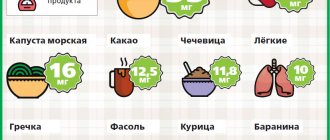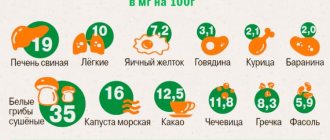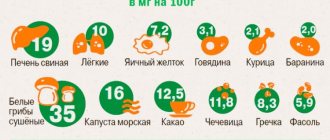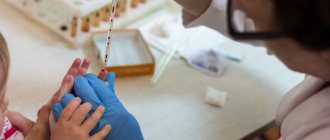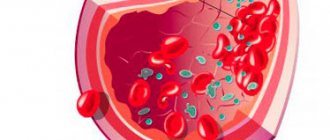Blood is the most important internal environment of the body, the pathologies of which disrupt the functioning of all organ systems. When signs of blood thickening appear against the background of a wide range of diseases, the risk of developing severe cardiovascular complications increases significantly.
There are many means to reduce blood viscosity, the safest of which are medicinal plants.
Some herbs actually have a proven ability to thin human blood and also effectively prevent the formation of blood clots. In this article, we will provide a list of the most effective ones.
Before starting herbal medicine, it is recommended to carefully study the list of all contraindications in which treatment may cause harm.
Let's remember that in the last article we looked at 7 herbs that thicken the blood →
Increased blood clotting
One of the characteristics of blood is its ability to clot. The clotting process is important to stop bleeding and hemorrhage caused by damaged blood vessels. This mechanism is provided by platelets - blood elements that form clots - thrombi. Blood clots prevent blood loss by closing damage in the walls of blood vessels and inhibit the movement of blood.
Due to various factors, the number of platelets in the blood may increase. Normal blood clotting is disrupted and becomes permanently increased, without damaging the blood vessels. Blood clots begin to intensively form, attach to the walls of blood vessels or be transported by the bloodstream.
A bleeding disorder - thrombophilia - leads to dilation of the veins and excessive formation of blood clots - thrombosis. Blockage of blood vessels by blood clots can cause stroke and heart attack, diseases of internal organs.
Increased blood clotting is called hypercoagulation, from the Greek. hyper – over, lat. coagulatio - coagulation.
Causes of hypercoagulability
- Disturbances in the formation of blood cells - tribocytes and erythrocytes;
- Taking certain medications (oral contraceptives, antitumor drugs, etc.);
- Pregnancy;
- Stagnation of blood due to a sedentary lifestyle;
- Hereditary predisposition to thrombophilia;
- Activation of platelets as a result of contact with infectious and foreign substances;
- Atherosclerosis;
- Vascular response to substances produced during stress;
- Various diseases (lupus erythematosus, gynecological, tumor, etc.);
- Trauma and rupture of blood vessels.
Increased blood clotting is diagnosed in both elderly and young patients. In old age the disease is multifactorial, in young age it is hereditary.
Possible causes of blood thickening
Increased platelet aggregation and coagulation is an extremely dangerous condition, in which the risk of developing fatal vascular complications (myocardial infarction, stroke, thromboembolism of the branches of the pulmonary arteries, etc.) increases several tens of times.
The pathologies leading to this condition in both men and women include:
- Dehydration. It is observed against the background of infectious intestinal diseases (salmonellosis, dysentery) and acute intestinal poisoning.
- Intestinal juice enzyme deficiency . Decreased digestion of food provokes a decrease in oncotic pressure in the intestinal lumen and loss of water and electrolytes.
- Lipid profile pathologies. Increased levels of total cholesterol and atherogenic lipids (TAG, LDL and VLDL) are a leading risk factor for thrombosis.
- Reduced content of important vitamins and microelements in the body (selenium, zinc, vitamin C, lecithin).
- Radiation sickness. The phenomena of this rare disease occur during massive exposure to radiation.
- Increased consumption of animal fats. As a result, excessive amounts of fatty acids circulate in the plasma, which reduce the sensitivity of insulin receptors. Glucose levels increase compensatoryly, which increases coagulation
- Diabetes mellitus type I and II.
- Hypoxia. Develops with carbon dioxide poisoning and pulmonary failure.
- Antiphospholipid syndrome. Antibodies are produced against the body's own cells (cell wall phospholipids). Long-term exposure to platelets and vascular intima increases the coagulation properties of blood several times.
- Critical impairment of liver function (cirrhosis).
- Polycythemia (increased production of formed elements or inhibition of their utilization, for example, with spleen insufficiency).
- Myeloma and a number of malignant proliferative pathologies.
- Varicose veins of the lower extremities and other diseases accompanied by a decrease in the intensity of venous blood flow.
- Burn damage to a large surface area of the body. At the same time, plasma with electrolytes sweats through open wound defects and the viscosity increases.
An increase in the concentration of non-liquid substances in the plasma is a severe deviation. If you do not contact a specialist in a timely manner or receive inadequate treatment, it can lead to disability or death.
Scientists also identify a number of risk factors for the development of the described pathology:
- sedentary lifestyle;
- obesity of any degree;
- abuse of bad habits (smoking, drug use);
- frequent exposure to stress and other psycho-emotional stress.
Treatment of increased blood clotting
To regulate increased blood clotting, you will need to take medications that thin the blood and prevent excessive blood clots in the following ways:
- The effect in the blood on the activity of proteins involved in blood clotting, the so-called blood factors. When the work of such factors is suppressed, the blood does not clot;
- Blocking enzymes that promote blood clotting - vitamin K, prothrombin, synthesized in the liver and others;
- Preventing platelets from sticking together in blood clots
- Breaking down and preventing clots from red blood cells. Such clots can form in various inflammatory diseases.
Anticoagulant, from Greek. anti – against, lat. coagulans - coagulant - is the ability to prevent blood clotting and reduce its viscosity by affecting clotting factors. Anticoagulants do not destroy existing blood clots, but prevent the formation and growth of new clots.
Close to the anticoagulant effect is antiplatelet - blocking the connection of platelets for the formation of blood clots.
Another similar effect is fibrinolytic, or thrombolytic. It involves the destruction of fibrins - protein fibers that hold platelets in blood clots. The effect is manifested in the resorption of new, not yet sufficiently formed blood clots.
Signs of varicose veins
With varicose veins, it is vital to monitor blood viscosity indicators. This is a key point in the treatment and prevention of the disease.
The main signs of varicose veins are:
- pain in the legs when walking, at rest;
- visual changes in the skin - hyperpigmentation, the appearance of vascular networks, bulging dilated veins;
- tired legs at the end of the day.
Ignoring the symptoms of varicose veins is fraught with serious consequences. The pathology often develops into phlebitis or thrombophlebitis. But to thin the blood in the early stages of the disease or for prevention purposes, it is not at all necessary to use expensive medications. There are a number of natural food products that successfully cope with this task.
Contraindications and precautions
- A side effect of anticoagulants may be an increased risk of bleeding.
It is important for patients, especially elderly and senile patients, to take maximum possible measures to prevent falls and injuries while taking anticoagulants: wear comfortable shoes, light the room, etc. falls can cause bleeding; while taking medications, blood clotting decreases.
- It is necessary to stop taking anticoagulant herbs before scheduled operations, except for tooth extraction, minor operations for glaucoma and cataracts, and opening abscesses.
- It is not recommended to combine plants with anticoagulant properties with synthetic drugs for the same purpose. Their combined effect will increase the risk of internal bleeding and a low platelet count in the blood.
General contraindications to the use of herbal anticoagulants
- Continued bleeding;
- Brain hemorrhage;
- Cerebrovascular accident;
- anemia;
- spinal cord tumor or injury;
- surgery or biopsy within the last 1.5 months;
- liver failure;
- menses;
- pregnancy;
- traumatic activity.
Products contraindicated for hypercoagulability
In case of increased blood clotting and treatment for it, it is undesirable to consume foods that increase blood viscosity and are rich in vitamin K.
These include:
- Buckwheat grain;
- Green vegetables;
- Animal fats: butter, lard, etc.;
- Walnuts;
- Bananas.
From plants:
- Nettle;
- Rowan;
- Rose hip;
- Yarrow;
- Oak bark;
- Viburnum bark;
- St. John's wort;
- Corn silk.
Risk factors
The main reasons that cause blood thickening, as well as increasing the risk of developing varicose veins and thrombosis, are:
- Hormonal imbalance. Due to disruption of hormone production, the system that controls blood clotting suffers.
- Obesity. Excess weight increases the risk of cardiovascular formations 10 times. There is enormous pressure on the body, as a result of which the blood suffers.
- Taking inappropriate oral contraceptives. They affect the balance of hormones in the body, as a result of which blood clotting indicators are disrupted.
- Smoking. Regular intake of nicotine into the body constricts blood vessels, which causes thrombosis, varicose veins and other pathologies of the vascular bed.
- Taking a number of medications. You should not take pills without a doctor’s prescription - this can lead to serious disruptions in the body, including the circulatory system.
- Chronic stress, anxiety. The increased release of adrenaline into the blood significantly narrows the patency of blood vessels, which can provoke the formation of blood clots.
- Insufficient fluid intake. For normal functioning of the body, you need to drink 1.5-2 liters of water per day (indicators vary depending on the individual characteristics of each person). Water is directly involved in all biochemical processes and affects blood clotting.
Nutrition plays an important role. An unbalanced diet leads to a lack of vitamins, microelements and nutrients in the body that are involved in the process of blood formation and are responsible for regulating its viscosity.
Interaction of herbal anticoagulants with synthetic drugs and food
- Herbal and synthetic anticoagulants should not be combined. Anticoagulant plants increase the effect of synthetic drugs, which increases the risk of bleeding.
- Blood thinning herbs are not recommended to be combined with medications that lower blood pressure.
- The thinning effect of plants decreases when combined with ginseng in any dosage form.
- Simultaneous use of herbal anticoagulants with herbs rich in vitamin K - nettle, alfalfa, etc., astringents and hemostatic agents is unacceptable.
- You should not drink grapefruit juice when treating with plants that have the opposite effect of vitamin K, for example, sweet clover.
How effective is herbal medicine?
It is necessary to understand that not a single medicinal plant has undergone large clinical trials regarding its ability to thin thick blood. Knowledge about the effectiveness of most herbs in relation to pathologies such as blood thickening is based on the results of the use of herbs by traditional healers and the practical experience of individual doctors.
An extremely common mistake is attributing effects to herbs, berries, vegetables and fruits, and other products based on the components of their composition. The active substances are contained in extremely small quantities and cannot even come one step closer to the pharmacological effects of medications included in the list of national recommendations, treatment protocols and other official medical information. This is what doctors are currently working on. If medicines are of plant origin, then the content of active substances is hundreds and even thousands of times greater than that of plants.
Expert commentary
Kardash Anton Borisovich
Therapist, cardiologist. Doctor of the highest category.
Thus, in case of serious pathologies of hemostasis, herbal medicines should not be used as the only method of treatment. It is necessary to consult a specialist and take herbal substances as an additional method of therapy.
Treatment of increased blood clotting with plants
The goals of herbal medicine for increased blood clotting are:
- Restoration of blood circulation with a tendency to thrombosis;
- Reduce the likelihood of blood clots;
- To the extent possible, increase the solubility of already formed blood clots.
Anticoagulant and similar effects in plants are due to the presence of coumarins, glycosides, and bioflavonoids. The anti-inflammatory effects of herbs are of additional importance, since clots of platelets and red blood cells can form as a result of inflammatory processes.
The anti-inflammatory effect of medicinal herbs is due to blocking the action of enzymes that trigger the inflammatory response. This effect reduces the risk of blood clots.
Many plants combine several medicinal properties, as a result of which they have a complex effect on the condition of blood vessels and blood.
The most effective plants with anticoagulant effects:
- Sweet clover;
- Meadowsweet;
- White willow (willow);
- The sequence is tripartite;
- Leuzea safflower;
- Red clover;
- Horse chestnut;
- Garlic;
- Astragalus;
- Periwinkle;
- Kelp (sea kale);
- Inflated carp hairy;
- Ginkgo biloba.
Symptoms indicating blood thickening
Doctors identify 8 main signs indicating problems with blood circulation:
- Periodic tingling in the limbs. They are often accompanied by a feeling of numbness. This is a key sign that blood does not penetrate well into the capillaries. As a result, the hands and feet are constantly cold, with a bluish tint.
- Gradual deterioration of vision and hearing. Problems with blood supply affect the key senses of perception of the world around us. Another sign is tinnitus.
- When cuts occur, the blood flows slowly and is dark in color.
- Drowsiness, frequent yawning. Due to problems with blood circulation, the body experiences oxygen starvation. Sleep becomes restless, anxious, intermittent. Even while awake, you feel a loss of strength, lethargy, and fatigue. This condition is also called chronic fatigue syndrome.
- Unreasonable muscle pain, weakness in the body. The pain syndrome is often localized in the back of the head, shoulders, and upper back.
- Labored breathing. It is difficult for the heart to pump viscous blood, which causes arrhythmia, which causes shortness of breath.
provokes arrhythmia, which causes shortness of breath. If you experience one or more signs, you should consult a doctor and undergo a comprehensive examination. You will need to undergo tests and other studies as directed by a specialist.
Sweet clover
Sweet clover grass contains coumarins, the highest content of which is in flowers. Also active substances are glycosides and flavonoids melitoside and quercetin. The content of these substances determines the anticoagulant and antiplatelet effects of the plant.
It is used for the prevention and treatment of cardiac thrombosis and angina pectoris, thrombophilia, thrombophlebitis.
In addition to preventing blood clots, sweet clover prevents the formation of red blood cell clots.
The use of sweet clover herb requires caution. Dicoumarin, which provides the main medicinal effect, can cause headaches, nausea and vomiting in case of overdose. If symptoms of poisoning appear, you should immediately stop taking sweet clover.
The use of sweet clover is contraindicated during pregnancy and internal bleeding.
Infusion of the herb melilot officinalis
Sweet clover herb – 15 g.
- Pour 250 ml of chilled boiled water over the herb.
- Leave for 4 hours in a sealed container.
- After infusion, filter and squeeze.
Take 100 ml 3 times a day.
The effectiveness of herbal medicine
The properties of herbs, berries, fruits and vegetables are known thanks to traditional healers and individual doctors who use them in their practice. There have been no relevant clinical trials on the effectiveness of their action in blood thickening.
Medicinal herbs contain natural active ingredients that affect the body and thin the bloodstream. However, their concentration is insignificant compared to medications. That is why herbs for blood thickening are used only for prevention, and not for treatment. If there are serious blood flow disorders, you must contact official medicine.
Lungwort soft
The anticoagulant property of lungwort is manifested due to the content of pyrrolizidine alkaloids throughout the plant. They inhibit the activity of the enzyme responsible for the synthesis of inflammatory mediators. Lungwort also has a fibrinolytic effect due to the presence of glycopeptides. The substances prevent the formation of fibrin fibers, thus preventing the formation of blood clots.
The above-ground part of the plant is used as a medicinal raw material.
Infusion of soft lungwort
Soft lungwort herb - 2 tbsp. l.
- Pour the chopped herb with 2 cups of water.
- Heat in a water bath for 15 minutes.
- Leave for 1 hour.
- Filter and squeeze.
Drink half a glass 3-4 times a day half an hour before meals.
White willow (willow)
Acetylsalicylic acid was first obtained from white willow bark, one of the uses of which is anticoagulant.
White willow contains the glycoside salicin, which is converted in the body into salicylic acid, as well as flavonoids and ascorbic acid. Salicylic acid has an anti-inflammatory effect and prevents the formation of blood clots: both platelets and red blood cells.
Willow bark is used for medicinal purposes.
White willow bark decoction
White willow bark - 1 tbsp. l.
- Pour 1 cup of boiling water over the crushed roots.
- Leave in a boiling water bath for 30 minutes.
- Filter while hot.
- Bring boiled water to the original volume.
Take 1 tbsp. l. 5 times a day.
White willow bark infusion
White willow bark - 1 cup.
- Pour boiling water over a glass of crushed willow bark.
- Leave for 30 minutes.
- Pour the broth into a basin.
Use for foot baths for varicose veins due to thrombosis and thrombophlebitis. Keep the feet in the broth until the water cools completely.
Overview of Traditional Methods
To thin the blood, patients are most often prescribed anticoagulants that reduce platelet coagulation and fibrin synthesis. Drugs can have a direct or indirect effect. The first group includes heparin and all its derivatives (“Thrombophob”, “Lavenum”, “Lioton”).
The group of indirect anticoagulants includes drugs such as Sinkumar, Warfarin, and Phenyllin. The medications have a prolonged effect and are extremely effective, but require close medical supervision due to the high frequency of complications (bleeding).
No less widespread are antiplatelet agents that can prevent platelet aggregation:
- "Cardiomagnyl";
- "Courantil";
- "Apecard";
- "Acetylsalicylic acid".
Expert commentary
Kardash Anton Borisovich
Therapist, cardiologist. Doctor of the highest category.
One of the safest medications is Cardiomagnyl. It is strictly forbidden to start using the described medications on your own. Such actions can lead to serious consequences.
When starting to take medications, the “benefit-harm” indicator is assessed. In addition to bleeding, complications such as:
- dyspeptic disorders (nausea, vomiting, bloating);
- atrophy of the gastric mucosa with the development of anemia associated with deficiency of vitamin B12 and folic acid;
- liver dysfunction with organ failure;
- disorders of the central nervous system (tinnitus, dizziness);
- urolithiasis (stones are represented by oxalates);
- acute glomerulonephritis;
- allergic reactions (from urticaria to anaphylactic shock).
Leuzea safflower
Leuzea is rich in a bioactive complex of phytoexidolones, flavonoids, coumarins and ascorbic acid. The combined effect of the substances provides a number of valuable properties, including anticoagulant properties. The flower baskets of the plant have the most pronounced effect on the blood.
Leuzea products should not be used if you have high blood or intraocular pressure or fundus diseases.
Decoction of the roots of Leuzea safflower
Rhizomes with Leuzea roots - 1 tbsp. l.
- Pour 200 ml of boiling water over the roots of Leuzea.
- Boil over low heat for 20 minutes.
- Leave at normal temperature for 30 minutes.
- Filter and squeeze.
Drink 1/2 glass 2 times a day.
Why is it necessary to thin the blood during thrombosis?
Blood viscosity is a vital indicator. If there are problems with it, a number of serious pathologies may develop, including thrombosis, varicose veins and even stroke. Blood clots can partially or completely close the vascular bed, limiting blood flow and causing necrosis and gangrene. Blood clots slow down the supply of oxygen to various organs. Also, increased blood viscosity can lead to coronary artery disease or thromboembolism of the heart and lungs. This is an extremely serious condition that requires immediate treatment.
Horse chestnut
The fruits and bark of horse chestnut contain the glycoside esculin and the saponin escin. Esculin reduces capillary permeability, stimulates the antithrombotic activity of blood plasma, preventing the formation of blood clots. Escin reduces blood viscosity, promoting the resorption of blood clots.
Horse chestnut fruit tincture
Horse chestnut fruits – 10 g.
- Crush the peeled chestnut fruits.
- Pour in 1/2 cup of vodka.
- Leave for 7-10 days in a dark place, shaking occasionally.
- Filter the tincture.
Take 30 drops in a small amount of water 20 minutes before meals.
Blood thinners
There are a number of blood thinners available. They are divided into two types:
- Anticoagulants that prevent the formation of blood clots. The most popular are Heparin, Warfarin, Edoxaban.
- Anticoagulants that control platelet production. The most famous drug is Aspirin, all the others are its variations.
You cannot take pills without a doctor's prescription. Although they are sold over the counter, they should not be taken unless indicated as they can have serious consequences.
Meadowsweet (meadowsweet)
Meadowsweet reduces blood clotting and blood pressure. The plant contains salicylic acid and its compounds, coumarins, glycoside spirein, ascorbic acid. Salicylic aldehyde thins the blood, prevents the formation of blood clots and blockage of blood vessels. It also improves capillary tone and reduces the formation of trophic ulcers - ulcers associated with tissue malnutrition due to venous diseases.
All parts of the meadowsweet are used.
Infusion of meadowsweet
Herb with meadowsweet flowers – 1 tsp.
- Pour a glass of cooled boiled water over the grass and flowers.
- Leave in a sealed container for 8 hours.
- Strain.
Take 1/3 cup 3 times a day before meals.
In what cases can you get by only with folk remedies?
To thin the blood, herbal remedies containing salicylic acid are used. Herbal teas, decoctions and infusions prevent the formation of blood clots or slow down blood clotting.
Consumption of foods rich in taurine (seafood), arginine (nuts and grains), omega-3 (fish, oils), coumarin (berries), salicylates (citrus fruits, tomatoes) has a beneficial effect on thickening.
Taking herbs to thin the blood is prescribed for the primary signs of thickening. Plants are used when there are contraindications to medications. The amount of active substances contained in herbs is sufficient to provide a therapeutic effect.
Tripartite sequence
Tripartite string is rich in polyphenols, flavonoids and coumarins. The anticoagulant effect is due to the combined action of a complex of substances. One of the mineral substances that helps prevent blood clots is manganese, which is also found in large quantities in the herb.
Contraindications for the series are hypotension, diarrhea, increased excitability, age up to 3 years, with caution - up to 12 years.
Herbal tea from a series
Herb tripartite - 2 tsp.
- Brew the chopped herb with 0.5 liters of boiling water.
- Leave for 30 minutes.
Drink the herbal drink throughout the day, distributing it evenly throughout the day to avoid stomach irritation. Tea helps improve the condition of blood vessels.
Astragalus wooliflora (hairy)
The aerial part of astragalus is used for medicinal purposes, and less commonly, the roots. Astragalus contains bioflavonoids, coumarins, triterpene compounds, ascorbic acid and minerals.
Astragalus herb is used for circulatory failure, to dilate the blood vessels of the heart, and lower blood pressure.
Infusion of Astragalus wooliflora herb
Astragalus herb – 2 tbsp. l.
- Pour 200 ml of boiling water over the chopped herbs.
- Leave for 30 minutes at room temperature.
- Cool and strain.
- Bring boiled water to the original volume.
Take 50 ml 3 times a day.
Ginkgo biloba
The main use of ginkgo biloba is to improve cerebral circulation. But the plant also affects the condition of the arteries and veins of the whole body. Ginkgo leaves have moderate antiplatelet properties, preventing the formation of blood clots.
Ginkgo biloba contains terpene compounds unique to it, as well as polysaccharides and amino acids.
Contraindicated for hypertension, acute cerebrovascular accidents, and diseases of the gastrointestinal tract.
Ginkgo biloba aqueous extract
Ginkgo biloba leaves or powder – 1 tbsp. l.
- Pour crushed leaves into 250 ml of hot water.
- Heat in a water bath for 15 minutes.
- Leave for 30 minutes.
- Strain and squeeze.
Take 1/4 cup 3 times a day 30 minutes before meals.
Additional effect of herbs
Medicinal plants have a number of beneficial properties for the body. In addition to normalizing blood flow, they are used for:
- Strengthening blood vessels. Meadowsweet, sweet clover, chestnut, white willow bark, Ginkgo biloba leaves, etc. are suitable. These herbs affect the walls of blood vessels and restore them. This is especially true for older people, since blood vessels lose their elasticity with age. The herbs are also suitable for people suffering from high blood pressure. Strong blood vessels will help prevent possible bleeding.
- Normalization of pressure. They use hawthorn, meadowsweet, black currant, hibiscus, and clover.
- Cleansing blood vessels from cholesterol. Sweet clover, chestnut, lungwort, roots of Caucasian dioscorea are suitable.
Herbal infusions from these plants have a beneficial effect on the heart, blood vessels, and help thin the blood.
Garlic
Among the many bioactive compounds in garlic, allicin and achoene are important for the treatment of blood clots. They are formed in garlic under the influence of enzymes during the grinding of cloves or during heat treatment. After several intermediate reactions, achoene is formed, which exhibits the greatest activity. Achoen prevents the formation of blood clots and destroys fibrin fibers that glue platelets together.
Garlic remedy for blood vessels
Ingredients:
- Garlic cloves – 400 g;
- Milk – 3.5 l.
Preparation:
- Grind the garlic into a paste.
- Pour milk over garlic mixture.
- Place in a sealed container over low heat and keep until the liquid has evaporated by 4/4 of the volume.
- Cool and strain.
Drink 1/3-1/2 cup in small sips 3-4 times a day before meals. Store in a cool place.
What foods thicken the blood?
In order to keep our health in good shape, it is necessary to understand which foods thicken the blood and which thin it. Next, we will make a short list of the most effective ones that thin the blood and prevent blood clots:
- Berries (absolutely any).
- Fruits (especially citrus fruits): pomegranate, lemon, orange, etc.
- Garlic, pepper, onion.
- Sunflower or pumpkin seeds; walnuts.
- Figs
- Beetroot, artichoke, ginger.
There is a certain set of foods that do not thin, but, on the contrary, thicken the blood (for people with an incorrect ratio of blood and plasma (the phenomenon of the so-called “liquid blood”), it will be very relevant). We need to know about it so as not to harm our own body. These foods and drinks include:
- Potato.
- Bananas.
- Buckwheat.
- Yarrow.
- Aronia.
- Nettle.
- St. John's wort.
Medications for increased blood clotting
In the pharmaceutical industry, herbal tinctures are produced to treat hyperclotting, and tablets and capsules are made from dry herbal extracts.
In the treatment of increased blood clotting, herbal mixtures with several medicinal properties are used: anticoagulant, venotonic, capillary-strengthening, fibrinolytic, immunostimulating.
Antithrombotic collection
Ingredients:
- Sweet clover herb – 5 g;
- Horse chestnut fruits – 15 g;
- Eleutherococcus senticosus roots – 15 g;
- Hop cones – 25 g;
- Mint leaves – 10 g;
- Mountain arnica herb – 10 g.
Preparation of the infusion:
- Grind the ingredients and mix.
- 2 tbsp. L. Pour 200 ml of boiling water.
- Leave in a boiling water bath for 15 minutes.
- Cool for 45 minutes.
- Strain the finished infusion.
Take 1/2 cup 3 times a day during or after meals for 1 month.
Collection for thrombosis and thrombophlebitis
Ingredients:
- Sweet clover herb – 1 part;
- Chamomile flowers – 1 part;
- Tripartite succession grass – 2 parts;
- Coriander fruits – 1 part;
- Marsh cudweed herb – 1 part;
- Licorice root – 1 part.
Preparation:
- Grind all components and mix.
- 1 tbsp. l. pour a glass of boiling water over the herbal mixture.
- Boil in a water bath for 5-10 minutes.
- Leave for 45 minutes.
- Filter.
Drink half a glass 2 times a day, course – 2 months.
Additional recommendations and prevention
Taking medicinal herbs and healthy foods alone will not make a global difference to your blood clotting situation if you are overloading your body and ignoring other principles necessary to maintain health.
It is extremely important to change your approach to nutrition. You should exclude harmful foods from your diet - fried, spicy, salty, flour, sweet. It is better to bake dishes in the oven or steam them.
Another point is moderate physical activity. Many people today lead a sedentary lifestyle. You need to be in the fresh air for at least half an hour a day, walk a lot. If your schedule allows and you want to, go to the gym, dance hall or swimming pool.
You should also give up bad habits. Alcohol and cigarettes have never made anyone healthier. Many people consider proper nutrition expensive, but much more money is spent on unhealthy foods and bad habits. Your health is only in your hands! And when the first alarming symptoms appear, indicating problems with the cardiovascular system, you need to consult a doctor.

